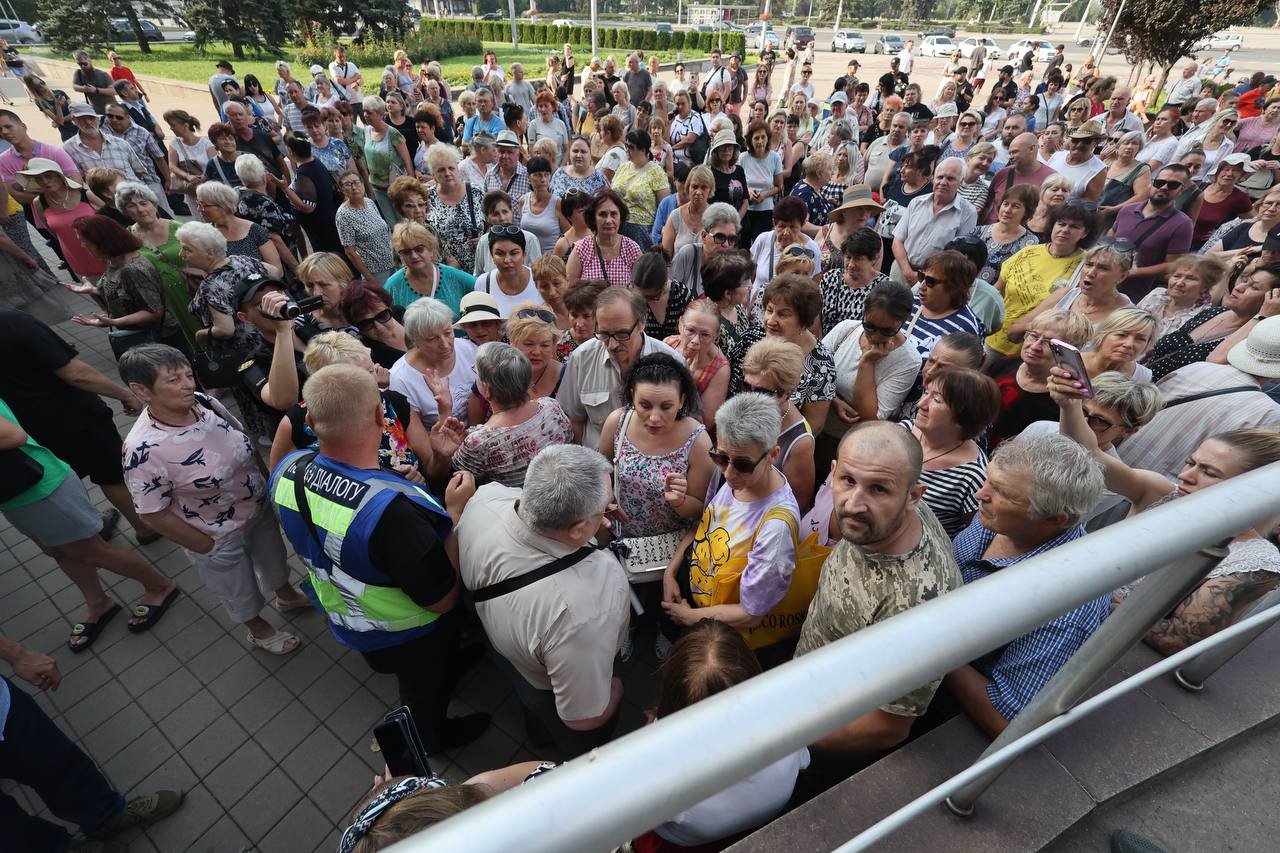A difficult situation with electricity shortages is turning into a political crisis in Ukraine. In the past week, calls for protests against power outages have intensified, and the first waves have already begun. Read on to find out who is organizing them and what they could lead to.
The largest protests as of July 19 took place in Zaporizhia, although it is not the only city where vigorous activity in this area is unfolding. The movement along Zaporizhia’s main avenue was paralyzed for several hours, causing particular inconvenience to those trying to get to work at that time. It is noted that more than three hundred people attended the protest, despite the abnormal heat.
Protesters do not always present their demands and grievances cohesively, but the main ones are as follows:
- Cancel electricity outages and return the energy sector to its pre-war state. How this can be achieved considering the destruction of facilities after Russian attacks is something the protesters do not want to consider.
- Implement “fair outages.” This means that all residents of cities should be disconnected from electricity, even if they are co-located with critical infrastructure. They are not interested in how long and what is needed for such reconnections.
- Stop exporting electricity to EU countries.
The last point is actively promoted by Russian narratives aimed at destabilizing the situation in Ukraine. Although there is no evidence to support this, a large number of people somehow find “treason” specifically in this point.
Protesters mention that they have significant problems in their daily lives, which is 100% accurate, and demand quick decisions within a couple of days. They emphasize that there are no organizers behind the protest. Strangely, during such gatherings, there is no mention at all of the causes of the energy crisis, namely – Russian aggression. This is mostly portrayed as a purely internal issue due to corruption and intentional worsening of people’s lives.
Could these actions lead to catastrophic consequences? Local authorities believe so. But it all depends on the awareness of the citizens themselves, who must understand who benefits from their actions first and foremost.


